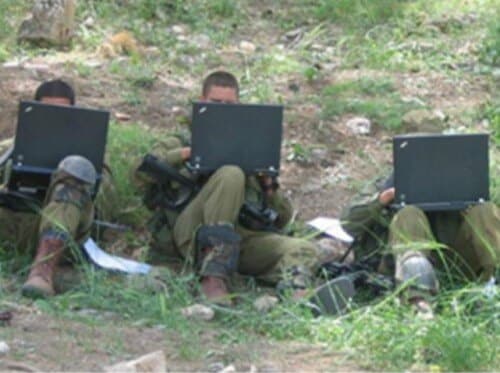Israeli research makes it possible to identify in advance soldiers who are prone to suffer from a post-traumatic reaction

Combat reaction, or in its popular name "battle shock", is a post-traumatic disorder (PTSD), which is caused by exposure to a severe event such as combat or an attack. It manifests itself when the memory of the difficult event reawakens - for example, at the sound of an explosion - and can cause a real disturbance in the life of those who suffer from it. A first-of-its-kind Israeli study attempted to identify in advance soldiers who are prone to a combat response, through early research. Most studies in the field involve those who have already been affected by the battle response. In this study, researchers from the Department of Psychology at Tel Aviv University and the Department of Mental Health in the IDF accompanied approximately 1,100 soldiers in infantry units from the time they were drafted into mandatory service.
Ignorance is dangerous
The soldiers met the researchers three times during their service. For the first time - at the beginning of the apprenticeship; The second time - at the end of the internship in preparation for the first operational activity; And on the third - after six months of operational activity in Judea and Samaria or on the border of the Gaza Strip. At each such meeting, the soldiers were asked to fill out questionnaires, as well as perform certain tasks on the computer, examining the way in which they relate to the risks facing them from the environment, and especially the degree of attention they pay to these threats. After the operational activity, the soldiers were asked about combat events in which they participated. After weighing the data, the researchers came to some interesting findings. Among them: the soldiers who showed in the attention tasks that they tend to ignore threats or avoid them, were at a relatively high risk of suffering from a post-traumatic combat reaction. The researchers also found a direct link between the scene of the operational service and the risk of a post-traumatic reaction - soldiers who served in areas defined as "high friction" such as Nablus, Hebron or the Kissuf area, were at a higher risk of such a disturbance than soldiers who did the operational activity in relatively quiet areas. With that, the researchers were surprised to find that even soldiers in quiet arenas have a 6-7% risk of developing such reactions.
Hard in training
To try to help the soldiers overcome the problem, the researchers, led by research student Alon Weld and the head of the School of Psychological Sciences, Prof. Yair Bar-Haim, developed a computer system that trains the soldiers to pay attention to threats. The intention is that the soldiers will practice using the system even before going into operational activity, will get used to not ignoring threats in the environment and will reduce their risk of having a combat reaction. This system is currently being tested in additional groups of infantry soldiers, and the researchers hope to summarize the first results of the test soon. Another and expanded version of the experiment is taking place in the US Army, where they want to examine ways to reduce the risk of soldiers suffering from post-traumatic disorders during prolonged military service abroad. Today, a similar study is being conducted in groups of soldiers before and after service in Afghanistan, in an effort to help them integrate into a normative life after liberation.
It's all in the mind
In addition to the questionnaires and computer assignments, the soldiers who participated in the broad study were also asked to give DNA samples. Using the samples, the researchers were able to discover a gene directly related to the level of risk of a fight reaction. The gene produces one of the proteins responsible for the reabsorption of serotonin in the brain cells. Serotonin is a neurotransmitter, meaning a substance that is released into the space in the brain cells in response to an electrical signal in one cell, and its release activates a response in the adjacent cell. Scientists already know that it is associated with a wide range of feelings and reactions, including irritability, aggression, depression, pleasure and appetite. The researchers found that the soldiers in whom the gene exists in a less effective version - that is, the removal of serotonin from the spaces between the cells in the brain is slow, and therefore the amounts of the substance are relatively large - are more protected against the post-traumatic combat reaction.
The beginning of the road
The large-scale study is published in the medical journal JAMA Psychiatry. At the moment, weighing all the findings, both behavioral (according to the attention tasks), both genetic and environmental (the place of service and the circumstances of combat), still succeeds in predicting the combat response of soldiers with only a partial degree of success. Out of all the factors that were weighed, still the most correlation to the battle response is the intensity of the fighting. That is to say, the more the soldiers were exposed to a fiercer battle, the more - as expected - their risk of post-traumatic reaction increased. However, the research proves that the possibility of predicting the risk of such a reaction in advance, even if to a limited extent, definitely exists. It is very possible that follow-up studies will make it possible to perfect the prediction model, and of course to improve the methods of prevention and save many thousands of soldiers - in the present and in the future - severe distress.
